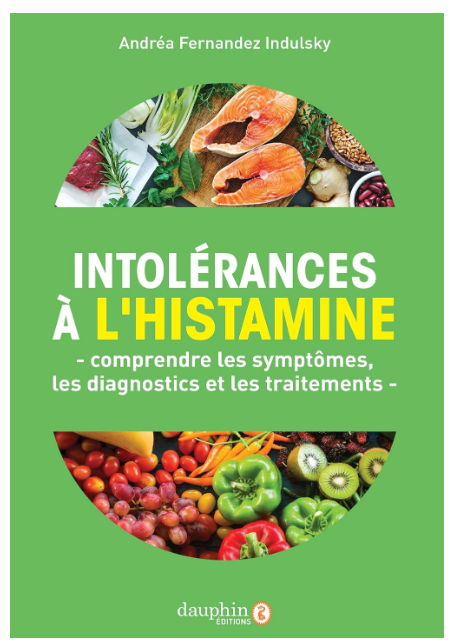Iron deficiency anemia - when the body lacks iron 3/3
Hi everyone!
I hope you're well.
Today we're talking:
### Newsletter: Iron deficiency, Hepcidin and B vitamins
Iron deficiency anemia is one of the most common nutritional disorders. Understanding its underlying mechanisms, including the roles of **hepcidin** and **B-vitamins**, can help with prevention and treatment. In addition to its role in the production of red blood cells, iron supports many essential functions in the body. Let's take a closer look!
---
**What is iron used for in the body?
Iron is not only essential for the production of hemoglobin and red blood cells, it also plays a crucial role in several other bodily processes:
Hi everyone!
I hope you're well.
Today we're talking:
### Newsletter: Iron deficiency, Hepcidin and B vitamins
Iron deficiency anemia is one of the most common nutritional disorders. Understanding its underlying mechanisms, including the roles of **hepcidin** and **B-vitamins**, can help with prevention and treatment. In addition to its role in the production of red blood cells, iron supports many essential functions in the body. Let's take a closer look!
---
**What is iron used for in the body?
Iron is not only essential for the production of hemoglobin and red blood cells, it also plays a crucial role in several other bodily processes:
1. ** Energy production (ATP)**
Iron is a key component of the electron transport chain in **mitochondria**, helping to generate ATP, the body's main source of energy. A lack of iron leads to a drop in energy, causing fatigue and lethargy.
2. ** Brain function and cognitive health
Iron is essential for the **distribution of oxygen in the brain** and the synthesis of neurotransmitters, particularly **dopamine**. Iron deficiency can affect memory, concentration and learning ability.
3. ** Immune function
Iron is essential for the proper functioning of the **immune system**. It supports the development of immune cells such as lymphocytes and macrophages, which fight infection. Iron deficiency can weaken the immune response and increase vulnerability to infection.
4. ** DNA synthesis
Iron acts as a cofactor for enzymes involved in **DNA synthesis** and repair. This is crucial for cell division and tissue regeneration, which is why iron is particularly important during pregnancy and growth.
5. **Antioxidant defense and detoxification**️
Iron is involved in the activity of **cytochrome P450 enzymes**, which help detoxify harmful substances in the liver. It also protects cells from oxidative damage through enzymes such as **catalase** and **peroxidase**.
6. **️ Thyroid hormone metabolism**.
Iron is essential for the production of **thyroid hormones**, in particular the enzyme **thyroid peroxidase (TPO)**, which converts iodine into thyroid hormones. Iron deficiency can disrupt this process, leading to **hypothyroidism**.
7. ** Conversion of T4 to T3 (active thyroid hormone)**.
Iron is required for the **conversion of thyroxine (T4)** into the more active form, **triiodothyronine (T3)**. Iron deficiency can disrupt this conversion, causing symptoms such as fatigue, weight gain and increased sensitivity to cold.
8. ** Muscular health
Iron is a component of **myoglobin**, a protein that helps muscles store and use oxygen. It also plays a role in muscle function and endurance, hence the muscle weakness associated with iron deficiency.
9. ** Collagen synthesis
Iron is involved in the formation of collagen, essential for healthy skin, hair and nails**. Collagen also supports the strength of bones, tendons and ligaments.
10. ** Hormone synthesis
Iron is crucial for the synthesis of several hormones beyond the thyroid, including **steroid hormones** such as estrogen and testosterone, highlighting its importance in endocrine health.
---
**1. Hepcidin: the iron-regulating hormone**.
**What is it?
Hepcidin is a hormone produced by the liver that controls iron absorption and distribution. It regulates the amount of iron absorbed from the diet and released from storage sites.
**In case of iron deficiency** :
- Hepcidin levels are **low** to allow greater absorption of iron and release of reserves.
**In case of inflammation** :
- Hepcidin increases during inflammatory states, reducing iron availability, which can aggravate anemia (anemia of chronic diseases).
---
**2. Iron absorption and the role of B vitamins**.
**What is the role of B vitamins?
Vitamins B12 and B9 (folates) play vital roles in the production of red blood cells. A deficiency of these vitamins can lead to **megaloblastic anemia**, complicating the diagnosis of iron-deficiency anemia.
⚠️ **Combined deficiency** : Vitamin B12 and folate deficiencies can mask iron-deficiency anemia, resulting in red blood cells that are larger than normal but insufficient in number to transport oxygen properly.
---
**3. Identify and treat iron deficiency**.
**Key values to watch out for** :
- Hepcidin**: Important for diagnosing complex cases of iron deficiency.
- Ferritin**: Reflects iron reserves. Low ferritin indicates iron deficiency.
- Vitamin B12 and folate**: Optimal levels are necessary to avoid anemia and its complications.
**Treatment tips** :
- Iron supplements**: Replenish iron reserves with oral supplements such as Hemo complex bionutrics or Hemo nutrics, or Iron bisglycinate from copmed.
- B vitamins**: Restore B12 and folate levels through a balanced diet or supplements.
- Anti-inflammatory care**: Treat underlying inflammation to optimize iron metabolism.
---
**Last thoughts** :
Iron plays a vital role far beyond the production of red blood cells. Understanding the impact of **hepcidin**, **iron** and **B-vitamins** on overall health is essential to ensure proper diagnosis and treatment.
**Take care of your health, monitor your iron levels and stay informed!
HEMO-COMPLEX Bionutrics
High iron content per tablet: 40 mg
Well-absorbed form of iron: iron bisglycinate
Iron-enhancing co-factors: B vitamins and intrinsic factor
Good gastrointestinal tolerance

BNutrics Bionutrics
Vitamins B1, B2, B3, B5, B6, B12 and biotin support energy levels
Broad spectrum: 8 B vitamins and 3 B vitamin-related substances (choline, inositol and APAB)
In active, well-absorbed forms: directly available for use. The body no longer needs to transform them.
High dosage of vitamin B12 per tablet: 500 μg





